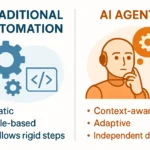If you’re new to SEO, or if your SEO strategy could use some help, then this list of 14 SEO basics everyone should know can help you build an effective SEO strategy that will improve your website’s visibility online, drive more traffic to your site, and boost sales and conversions on your website.
1) Write good content
With a huge focus on search and online media, SEO (Search Engine Optimization) is becoming a bigger part of marketing than ever before. Content marketing has come a long way from link-bait headlines, but even today Google ranks popular content much higher in search results than poorly written material.
The key, then, is making sure you always have something valuable to write about that’s relevant to your industry or niche. What are customers searching for? That becomes what you should be writing about—or at least giving tips on how they can find it. Here are 14 SEO basics everyone should know
If you are good at writing then you can also make a good amount of money from your writing skill. Here is a details guide on how to make money from your writing skill.
2) Optimize Your Titles
SEO basics everyone should know is a perfectly fine title. It isn’t catchy, but it does say what people will learn from your post. If you’re looking for ways to spice up your titles, try turning that everyone into a number: SEO Basics For Those With A Small Budget.
That limits your audience (which is good) but also implies that if you aren’t struggling with small budget problems, you don’t need these basics. Alternatively, you could use a more specific hook: SEO In The Age Of Google Panda. No one is going to argue about whether or not Google Panda even exists anymore, so there are no snarky remarks about your grammar and spelling.
If you have a WordPress website and want to optimize your WordPress website but don't know how to optimize WordPress website then you can check the details guide on how to optimize a WordPress website for SEO.
3) Check Meta Title and Description
Before people even get to your website, their search engines will look at your meta title and description. If it isn’t enticing or relevant, they won’t click. First impressions matter, and you only get one chance for them to see what you are about.
Make sure that the first impression is a good one by making sure your title and description are enticing and relevant. Include keywords if possible – but don’t go overboard with it! Keep in mind – these only show up when you search Google; they do not show up when searching on Bing. However, including them will help boost your rankings with Google which is still very important.
Do you know if your website is secure or not? If you don't know how to secure your website then you must this guide once.
4) Always Try To Create Engaging and fresh content
No matter what type of content you are creating, always try your best to create engazing and fresh content. The reason being if you are going through a lot of effort to create something new then it is likely that other people may benefit from that information too.
After all, who wouldn’t want to save time? So as long as you have tried your best or even sometimes when you haven’t, at least make sure it's engaging and fresh! However, don’t plagiarise or copy-paste someone else’s work (this goes for anything like business plans, etc).
5) Interlinking with your old relevant article
The practice of interlinking involves writing new, related articles and placing links within them that lead back to your original content. For example, if you have an old piece of content about SEO basics for beginners, it would make sense to write a newer follow-up post titled SEO basics everyone should know: Finding SEO traffic through backlinks.
When people click on your SEO basics everyone should know the link from your older post (and they will), they'll be taken directly to your newer one on how to acquire new traffic. That's a win-win situation in our book!
Be sure not to overdo it by making everything seem completely reliant on other articles. While having numerous pieces of relevant content is important, overdoing it could hurt you in Google's eyes.
6) Build do follow backlinks
Building quality backlinks from sites that have a decent amount of trust and authority is a great way to grow traffic and rank higher in search engines. There are three main components of creating an effective backlink strategy: follow vs. no follow links, anchor text vs. context links, and building relationships with webmasters by exchanging links or helping promote each other’s content.
With SEO basics, it’s important not only to understand which elements affect SEO rankings (as opposed to which tactics make your site look more appealing to human users) but also how they all come together into a cohesive strategy. Here are ten SEO basics everyone should know that will get you started optimizing your website
7) Check User Experience
User Experience, or UX for short, is a relatively new concept in web design and marketing. If you’re not familiar with UX, think of it as a bridge between marketing and development—UX looks at how your site is structured and how that structure plays into how users navigate your site. User experience checking is a very essential thing of SEO but this is not SEO Basics it is an advanced level of SEO.
Any successful e-commerce site (like Amazon or Etsy) has invested resources into UX in an effort to maximize sales while minimizing user frustration. For example, Amazon will recommend purchases based on previous items purchased by other customers—that’s an example of UX at work. The idea behind investing in these services isn’t just about looking nice; it should be an integral part of any serious business strategy.
8) Check if your site Mobile friendly or not
The phrase mobile friendly is getting tossed around a lot these days. But what exactly does it mean? Well, Google and Bing both use a tool called mobile-friendly test in order to determine if your site is optimized for viewing on mobile devices like tablets and smartphones.
If your site passes the test, you get a big thumbs up from search engines for creating an effective user experience for mobile users. The caveat: You must have a desktop version of your site in order to pass or be deemed mobile-friendly. Creating an effective user experience across all devices—desktop, tablet, and phone—is critical.
9) Implement Schema markup
A schema is a form of markup used in HTML to make it more search engine friendly. It makes it easier for Google and other search engines to extract information from your website and present it properly in search results.
This can mean anything from pulling product information for an e-commerce site, filtering out events on a timeline page, or listing upcoming concerts on a music site. To use Schema markup correctly you'll need data from all these places so make sure you're getting everything covered before you get started!
10) Get your pages crawled by search engines
It’s one thing for search engines to find your site, but it’s another thing altogether for them to crawl your pages and make sense of them. Unfortunately, a lot of website owners focus on optimization without actually making sure their site is crawlable by search engine bots—and as a result, they get nowhere fast.
While you can have some control over whether or not Google’s crawlers reach your site (more on that below), there are many other steps you can take to help increase accessibility. So you should check all these SEO Basics for your website to rank fast on search engines.
11) NAP (Name, Address, Phone Number) On contact Pages
You should do research on keyword phrases that you’ll want to target in your content and use them consistently throughout. Not only does doing so help you rank for those keywords, but it can also boost your credibility as an authority on your topic.
You’ll want to include these keywords naturally within your content, not just stuff them into meta tags or use them in page titles. You need a balance of both in order to attract organic traffic over time.
12) Do keyword research and target them in content
Let’s face it: we don’t spend enough time planning. One of those areas that seem to get neglected is SEO basics everyone should know.
If you aren't properly planning for SEO now, you may find yourself not ranking highly in search engine results come 2023. One of those areas of SEO that often gets overlooked is keyword research.
13) Use Social Media
More people are using social media sites like Facebook and Twitter on a daily basis, meaning that these sites have great potential to drive traffic back to your website. If you’re trying to optimize your website for search engines, using social media is a great place to start—it’s easy for folks searching Google to find an active social media profile and then follow you back. Social media optimization is an SEO Basics thing that you should focus on to increase your website traffic.
In addition, it will give you new sources of traffic every day as people see content posted by others in their newsfeeds or get recommended your content because they engage with posts often. The most popular platforms are covered in more detail below
14) Engage with potential customers on social media.
Social media is a powerful way to connect with potential customers. By regularly sharing useful content and interacting with your social media audience, you’ll help increase your company’s brand recognition and reputation while establishing yourself as an expert in your industry.
This will make people more likely to click on links you share in your social posts, which can drive referral traffic back to your website. The more time you spend engaging on social media, the faster you can build up a large following—and once that happens, you’ll have access to even more tools for reaching new customers and promoting your products online.
If you want to run any social media campaign then you should know how to create a social media campaign successfully. if you don't know how to do that then you can check our guide.
Conclusions
So, what have we learned today?
The most important thing is that SEO is a practice. You can't just do one thing and expect it to work. You need to find out what works for your website and your audience and keep working at it.
You also need to be aware of the basics—that means things like making sure you're using keywords in the right places on your site, including them in your title tags, and using relevant content that relates to what people are looking for when they visit your site. And finally, make sure you're keeping up with changes in search engine algorithms so you can stay ahead of what Google wants from its users!
If you want to improve your site's search engine rankings, it's important to understand what search engines are looking for and how they make those determinations. By following these 14 SEO basics everyone should know, you can optimize your website to ensure that it is found by users and bots alike.










1 thought on “14 SEO Basics Everyone Should Know to Optimize Their Website”
I loved even more than you will get done right here. The overall look is nice, and the writing is stylish, but there’s something off about the way you write that makes me think that you should be careful what you say next. I will definitely be back again and again if you protect this hike.